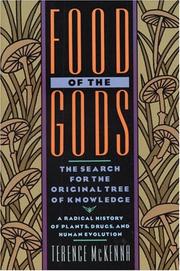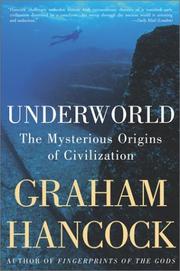📚 4 Books mentioned in "Graham Hancock: Lost Civilization of the Ice Age & Ancient Human History | Lex Fridman Podcast #449" of Lex Fridman Podcast

Podcast: Lex Fridman Podcast
Episode: Graham Hancock: Lost Civilization of the Ice Age & Ancient Human History | Lex Fridman Podcast #449
Published on October 16, 2024
Here’s a list of all the books mentioned in this episode. Click on the links to watch specific excerpts on YouTube and feel free to purchase the books if they caught your interest!

Food of the Gods
Buy Food of the Gods by Terence McKenna on Amazon
There are two names that need to be mentioned: the late, great Terence McKenna and his book Food of the Gods, where he strongly proposed the idea that our ancestral encounters with psychedelics made us fully human.
In this segment, Graham Hancock highlights the influential work of Terence McKenna, particularly his book 'Food of the Gods', in which McKenna argues that our ancient interactions with psychedelics played a significant role in the development of human consciousness.

Hamlet's mill
Buy Hamlet's mill by Giorgio De Santillana on Amazon
They wrote an immense book in the 1960s called 'Hamlet's Mill'.
Graham Hancock discusses the book 'Hamlet's Mill' by Giorgio de Santillana and Hertha von Dechend, which presents a groundbreaking perspective on the phenomenon of precession. This book significantly influences his own research.

Macbeth
Buy Macbeth by William Shakespeare on Amazon
A similar idea was explored by Professor David Lewis-Williams at the University of Witwatersrand in South Africa, in a fabulous book called The Mind in the Cave, where he's again asserting that astonishing similarities in cave art and rock art around the world can only be properly explained by people in deeply altered states of consciousness trying to remember their visions and document them in permanent media like cave walls.
In this segment, Graham Hancock discusses 'The Mind in the Cave' by David Lewis-Williams, which explores the idea that the striking similarities found in cave art globally can be attributed to individuals in altered states of consciousness attempting to recall and document their visions on enduring surfaces like cave walls.

Underworld
Buy Underworld by Graham Hancock on Amazon
But by 2002, when I published a book called 'Underworld', which was the most massive and heavy book that I've ever written because I was writing very defensively at the time.
Graham Hancock talks about his book 'Underworld', describing it as a substantial work he wrote defensively in 2002. This discussion revolves around his research into a lost civilization.
